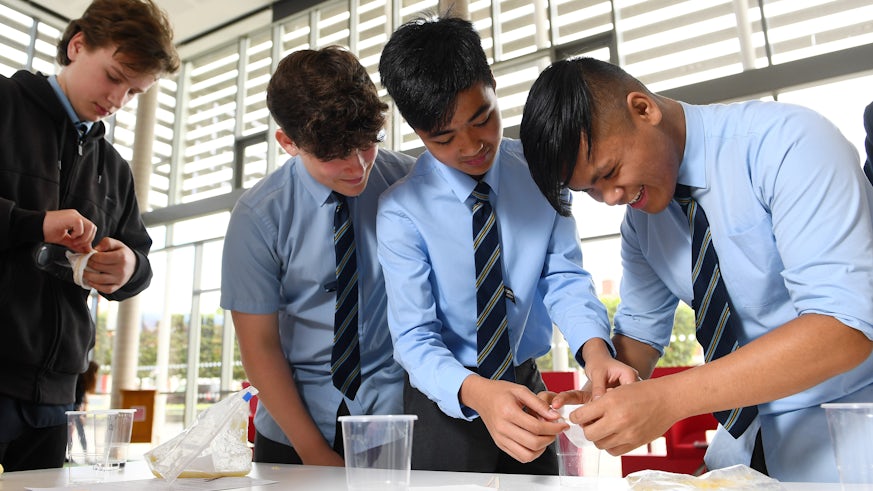MRC festival of medical research
24 June 2019

MRC Centres across the UK and in parts of Africa celebrated the fourth MRC Festival of Medical Research from 13-23 June 2019.
To mark the festival in Cardiff, we invited 40 Year 10 pupils from St Joseph's RC High School in Newport to the Hadyn Ellis Building to learn about genetics, mental health and our research.
Getting hands-on
The group learnt about neuronal stem cells through the medium of mini golf, with different obstacles on the course representing the challenges of reprogramming cells. Jasmin Donaldson explained the practicalities of this process, as well as how she's using the technique in her research on Huntington's disease.
Naomi Warne and Sarah Rook, research assistants on the Mental Wellbeing in Adolescence: Genes and Environment Study (MAGES), guided the pupils through how to extract DNA from bananas, while Dr Lesley Bates led a tour of our laboratories.
Next was the chance to learn how our genes and our environment interact and either increase or decrease our risk of experiencing mental health problems. Dr Will Davies explained this through our take on the classic game show Play Your Cards Right, although this nod to the past was (understandably) lost on our audience!
Continuing the genetics theme, Dr Emma Yhnell led an activity to demonstrate the instability caused by changes to our genes. The morning was rounded off with pupils learning about how personality traits can affect how we deal with the world around us by playing The Interview, a video game developed at JAMMIND.

Involvement
The afternoon session was more discussion-focused, where small groups focused on four key themes:
- What do you think affects our mental health?
- Do you know what support is available, and what would your ideal service look like?
- What are your research priorities?
- What promotes good mental health and resilience?
Each group was fully engaged, with everybody participating in the discussion and giving their views. It was a fantastic opportunity not only for us to improve their understanding of mental health risk factors and our research, but also for us to hear the thoughts and opinions of young people and their priorities for research.
